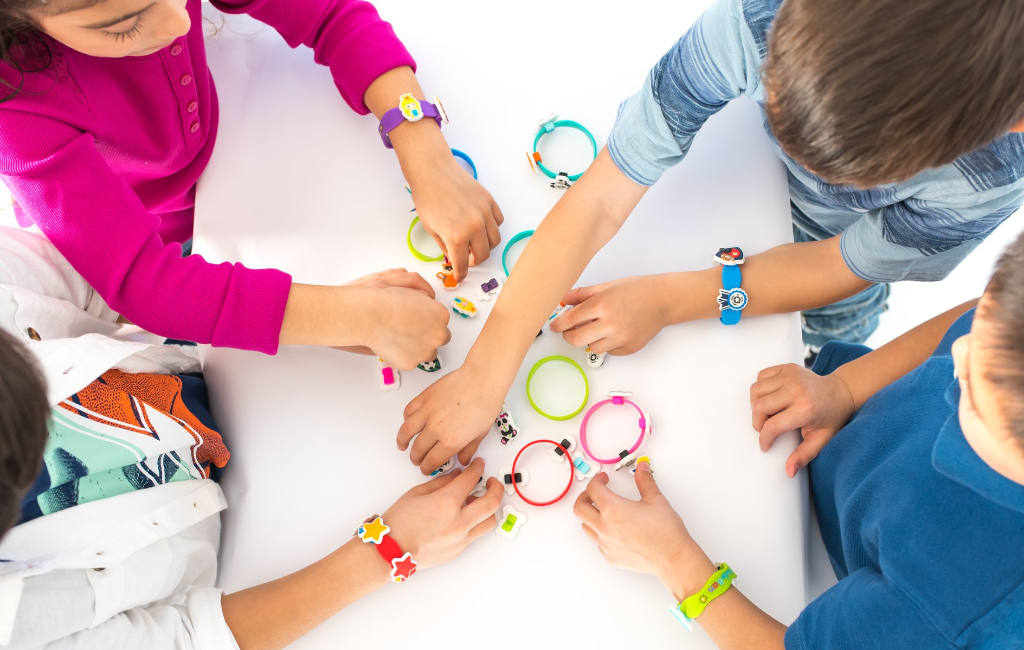Toybox 3D Printer For Kids
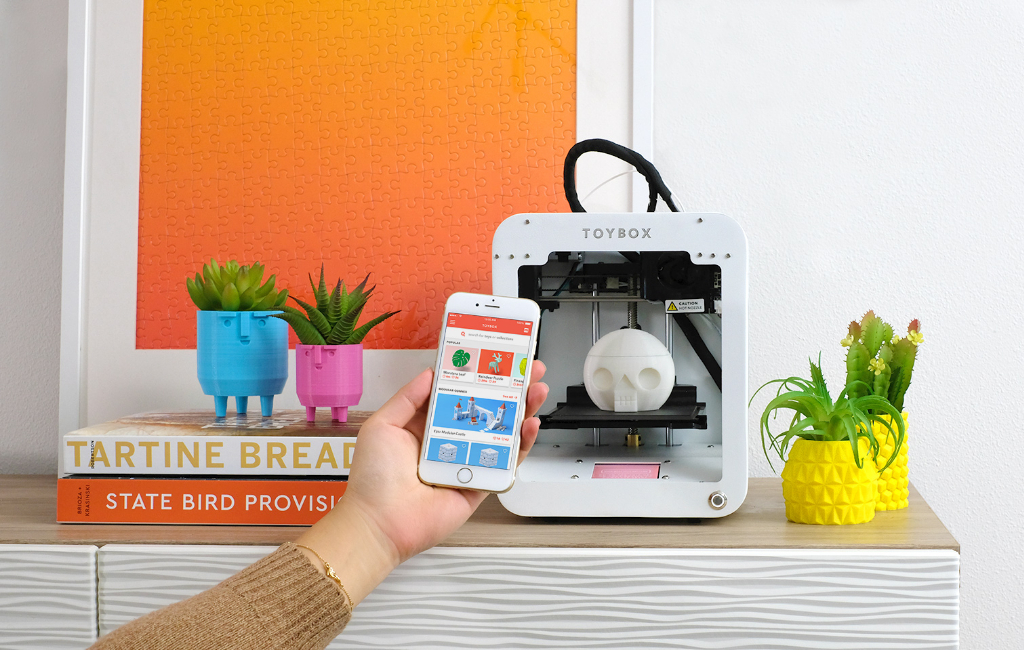

DEAL
EPISODE SUMMARY
🕓 Air Date: March 10, 2019
Asking For:
$150,000 for 5%
Investor:
Kevin O'Leary
Deal:
$150,000 for 13% + 2% advisory shares
PRODUCT SUMMARY
Toybox is a 3-D printer and creativity platform designed for kids, allowing them to easily create and print their own toys using a user-friendly app.
WATCH HERE
IN A RUSH?
Click these to jump to the section you want to read.
Background Story
Ben and Jenn, the co-founders of Toybox, have a compelling background story that fueled the creation of their innovative product. Ben reminisces about his childhood, where he engaged in imaginative play by building cities out of mud in his backyard. His resourcefulness extended to raiding dumpsters for parts to fuel his creative endeavors. These childhood experiences laid the foundation for his understanding of the untapped potential in children’s creativity.
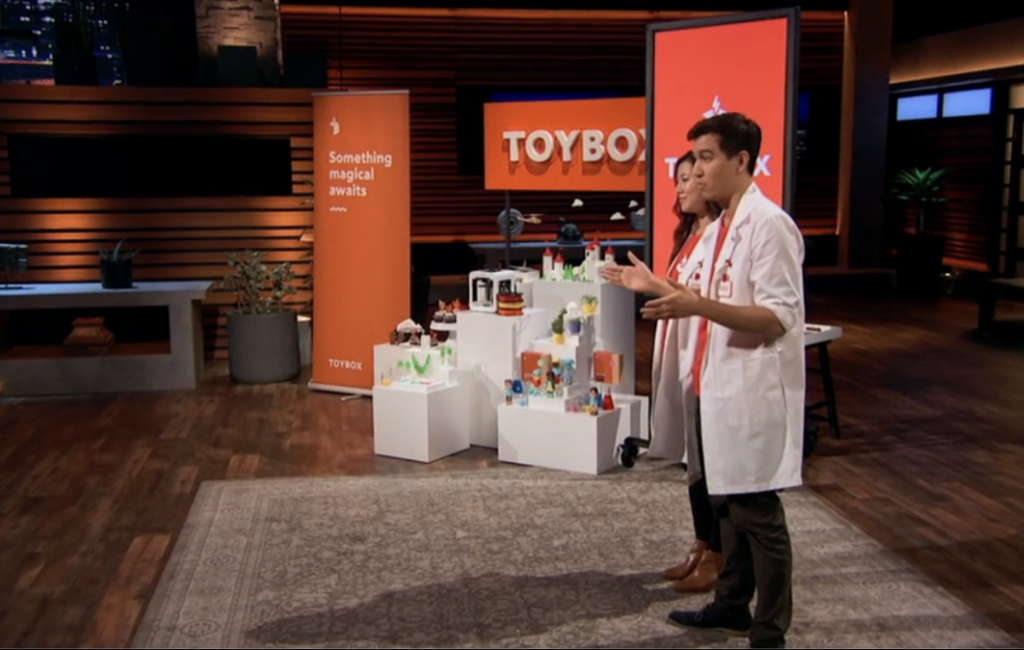
Jenn, the other half of the dynamic duo, brings her own expertise to the table. The founders reveal that they built Toybox on an $80,000 investment, showcasing their ability to leverage resources efficiently. Their professional backgrounds in software development, with experience at Microsoft as developers and engineers, played a crucial role in the development of Toybox. Ben specifically mentions his work in data science, indicating a comprehensive skill set that contributes to the product’s uniqueness.
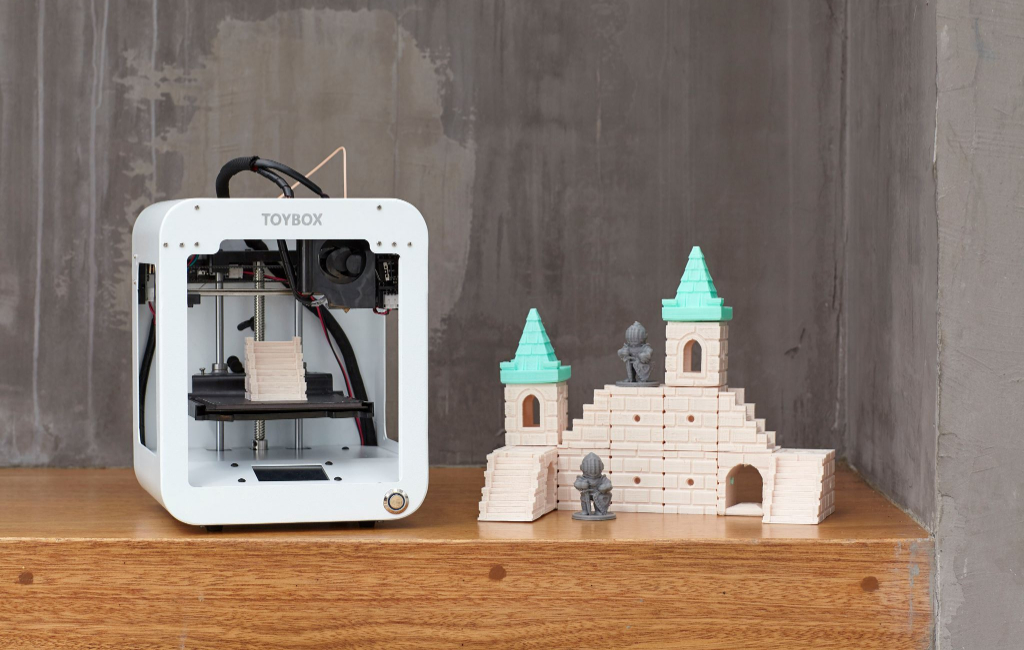
The genesis of Toybox stems from the co-founders’ realization that while kids have immense creative potential, they often lack the opportunity to bring their visions to life. The duo envisioned a solution that would empower children to design and build their own toys in a way that was both accessible and inspiring. This vision materialized into Toybox, the first-of-its-kind 3-D printer and creativity platform designed with kids in mind. The founders aim to provide children with a powerful tool that sparks their imagination and allows them to actively participate in the creation of their toys.
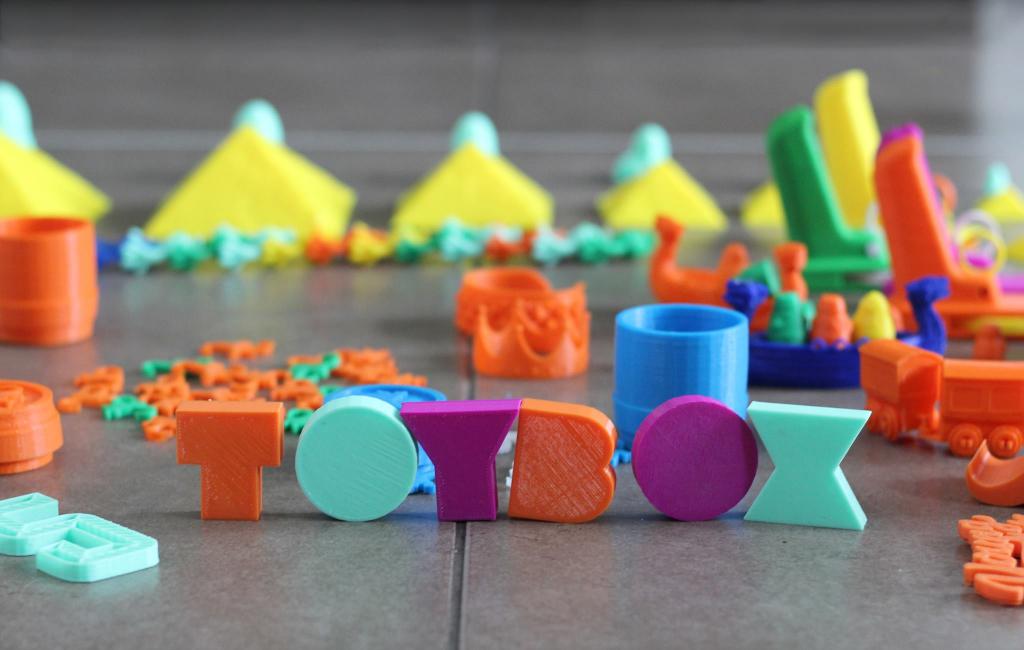
The Product
Toybox is a revolutionary 3-D printer and creativity platform designed to empower children to bring their imaginative ideas to life. Priced at $299, this cost-effective printer stands out in the market for its focus on user-friendliness and a diverse library of over 750 toys.
The printing process is simplified through the Toybox app, ensuring accessibility for children with no prior training. Users can effortlessly select a toy from the extensive library, press print, and watch as Toybox beams down and starts the printing process. For those feeling more creative, the app features a dedicated creator space, allowing kids to design and print their unique toys.
The hardware and software integration makes Toybox especially child-friendly. It differentiates itself by combining affordability with a rich user experience. The founders emphasize that they continually update the toy library, adding 7 to 10 new toys each week and monitoring children’s preferences to ensure relevance.
Targeted at the 6 to 9-year-old demographic, Toybox offers a unique way for children to engage with toys from popular media like Disney, Minecraft, Marvel, and LEGO. The product primarily sells through their website, with over $300,000 in sales since its launch in September. At its core, Toybox fosters creativity, making it an appealing and educational tool for young minds.
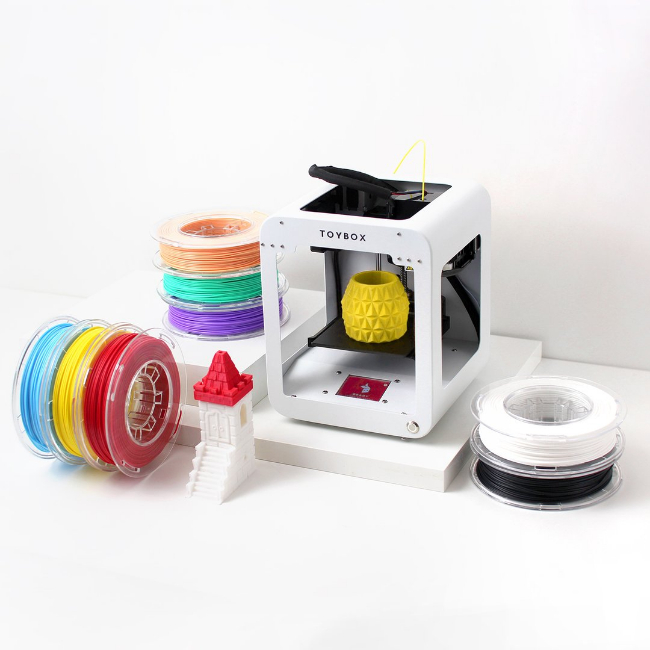
How It Went
The company’s position before Shark Tank
Toybox has demonstrated a robust performance since its inception, boasting a healthy financial position and strategic market positioning. The company’s primary focus has been on internet sales, with sales exceeding $300,000 since its launch in September. The founders highlight their cost-effective approach, having built the company on an $80,000 investment, showcasing financial efficiency. The founders, leveraging their expertise in software development from their tenure at Microsoft, strategically positioned Toybox in the market.
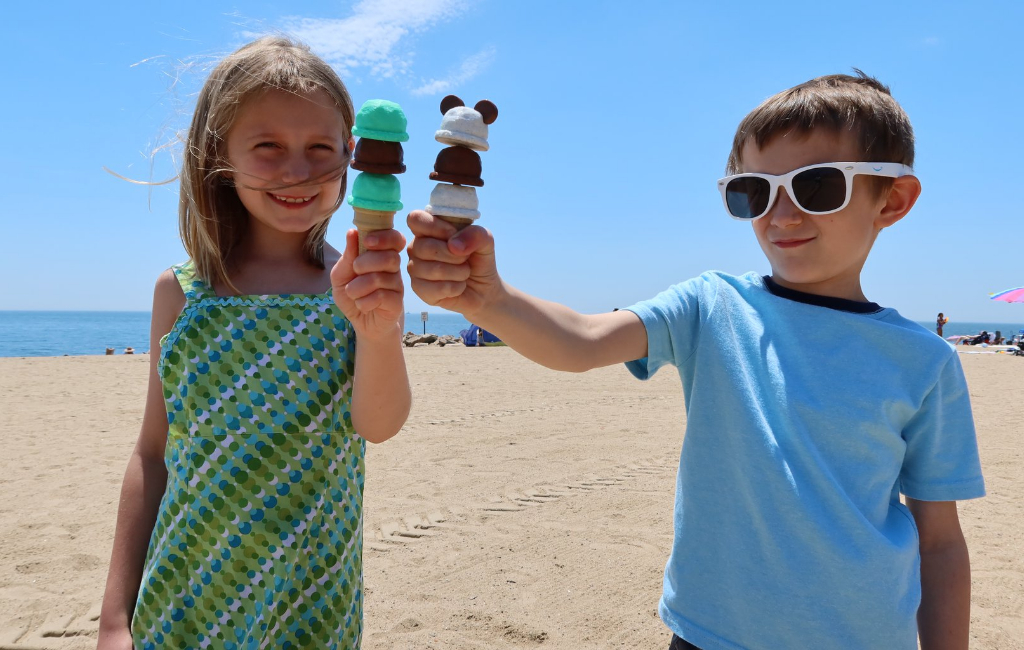
Toybox’s strategic advantage lies in its continuous efforts to update and expand its toy library, adding 7 to 10 new toys every week. This commitment to staying relevant and appealing to children’s preferences positions Toybox as an innovative player in the toy industry. The sales strategy primarily revolves around the company’s website, showcasing their direct-to-consumer approach. This direct sales model is further emphasized by their reliance on advertising through platforms like Facebook. Partnerships and wholesalers are not explicitly mentioned in the provided information, indicating a focus on a direct-to-consumer business model.
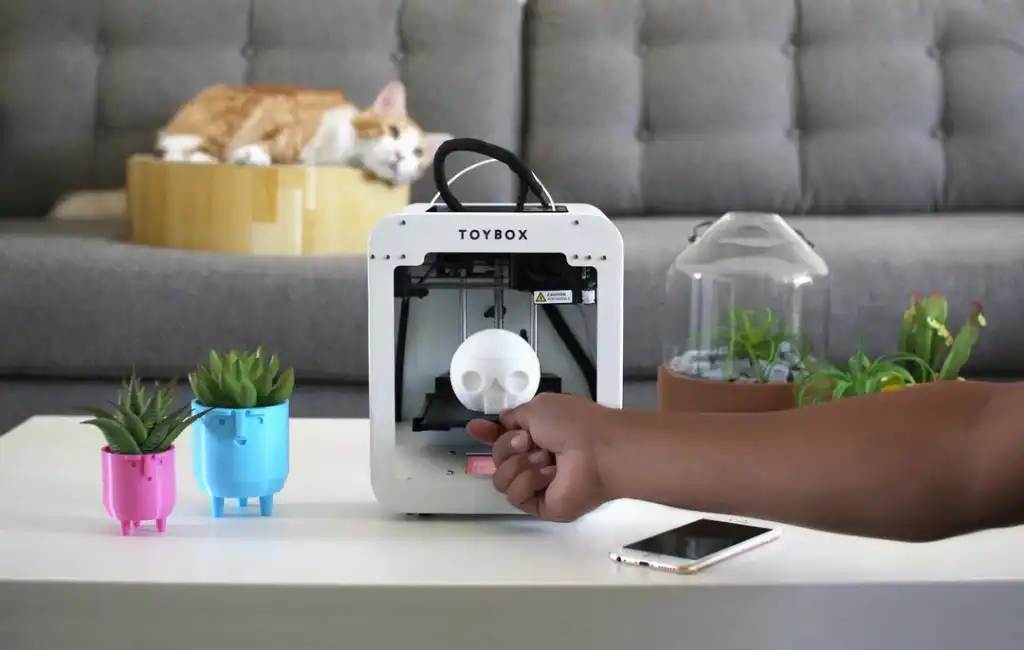
In terms of funding, Toybox has raised a total of $290,000, highlighting a careful balance between investment and financial sustainability. The company’s profitability is not explicitly mentioned, but the focus on cost-effective operations and the $300,000 in sales suggest a positive financial trajectory. The available capital and current company structure are not explicitly detailed in the provided transcript. However, the founders’ ability to build Toybox on a relatively modest initial investment showcases a resourceful approach to funding and operational management.
The Negotiations:
The negotiation process for Toybox on “Shark Tank” was dynamic, with the founders, Ben and Jenn, initially seeking $150,000 for a 5% stake in their company. The Sharks expressed interest in the innovative 3-D printer designed for children, and Kevin O’Leary was the first to extend an offer of $150,000 for a 10% stake. However, as the negotiation unfolded, concerns were raised by Lori Greiner and Mark Cuban about the target age group and potential challenges in capturing the market.
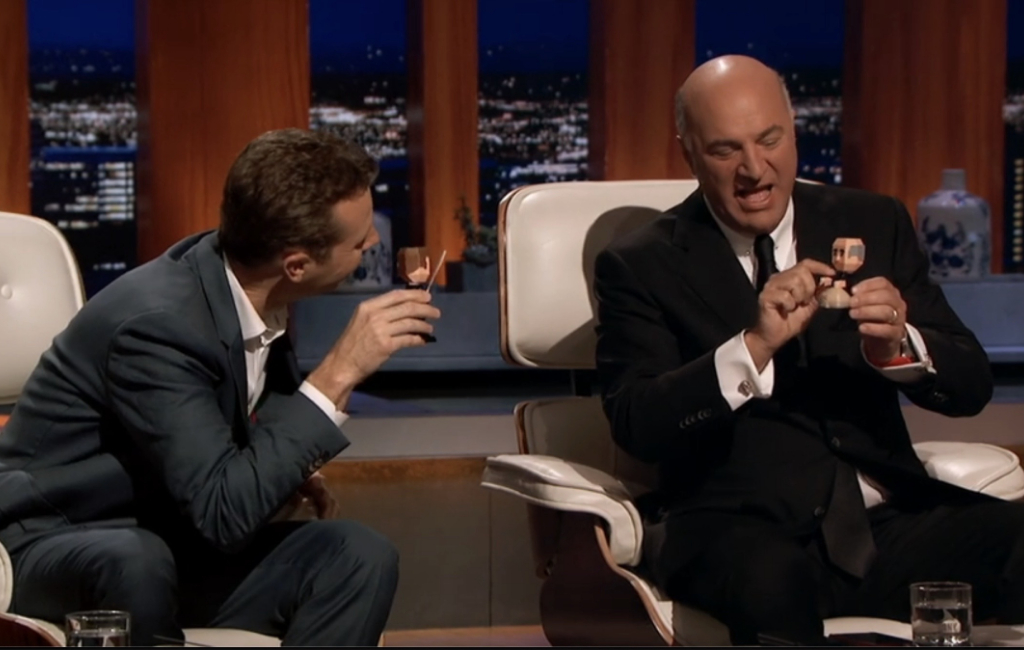
Despite these reservations, Barbara Corcoran stepped in with an offer, expressing her belief in the product’s potential but adjusting the terms to $150,000 for a 15% stake. The negotiation took a turn when Kevin O’Leary, recognizing the value in the product, presented a counteroffer. He proposed $150,000 for a 13% stake and an additional 2% in advisory shares. This offer was accepted by the founders, securing a deal with Kevin O’Leary.
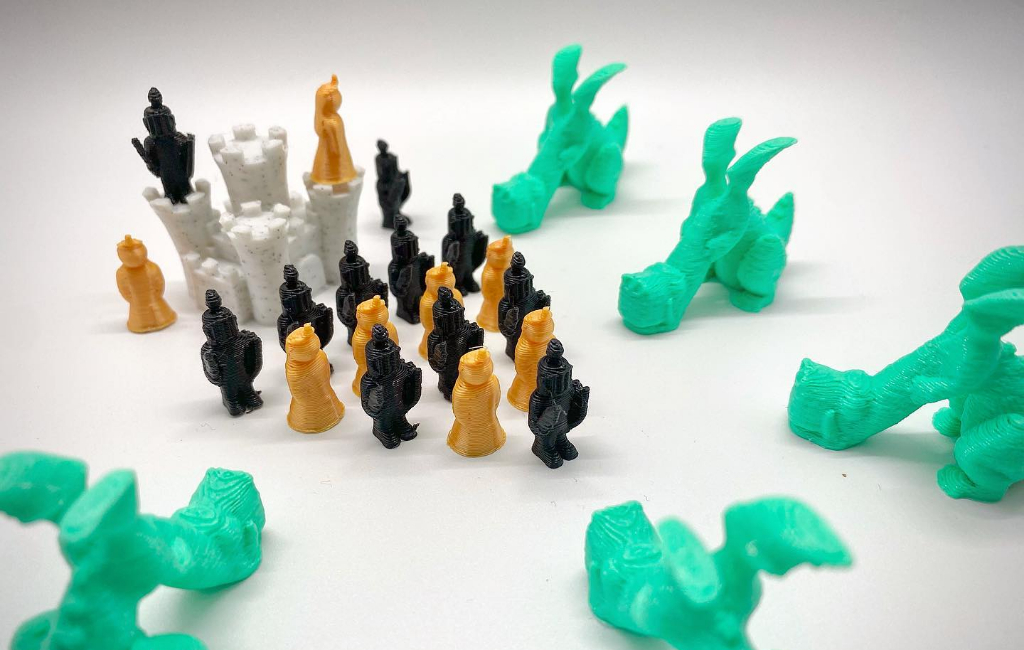
The negotiation process highlighted the unique challenges and considerations involved in marketing a product targeted at a specific age group, with Sharks expressing differing opinions on the market potential. The final deal reflected the founders’ recognition of Kevin O’Leary’s added value, not only in terms of capital but also strategic guidance. The negotiation showcased the founders’ ability to navigate the complexities of the toy industry and secure a partnership that positions Toybox for growth and success.







